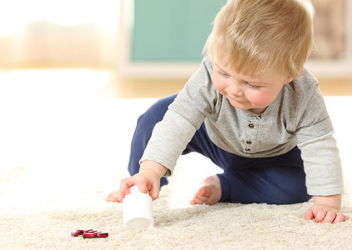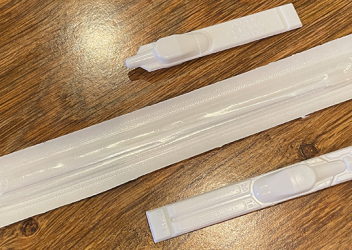Research In Action
Research In Action
Breadcrumb

Since their introduction in 2003, electronic cigarettes have mushroomed in popularity, with more than 2 million middle and high school students having reported using them recreationally. Touted as an alternative to traditional cigarettes, electronic cigarettes (also known as "e-cigarettes," "e-cigs," "vape pens," "vapes," "tank systems," or "mods," among other names) come in many shapes and sizes and produce a vapor by heating a flavored liquid using a battery and heating element. The user and those around the user inhale the aerosol into their lungs.
As many as two-thirds of teens may not realize that nearly all e-cigarettes contain nicotine, which is highly addictive and well known to negatively impact brain development. The amount of nicotine in a single e-cigarette of certain brands may be as much as that found in a pack of 20 regular cigarettes. But beyond the harmful impact of inhaling nicotine, e-cigarettes are associated with other potential injuries.
Exploding Cigarettes
While rare, battery related issues may cause to e-cigarettes to explode. A multi-site study from 2016 found that between 2013-2016, 15 children sustained traumatic injuries due to e-cigarette explosions. Two-thirds of patients required hospital admission (including to the intensive care unit) and several patients required surgery. Injuries included burns to the face, thigh and groin, hand, and eyes, as well as loss of multiple teeth.
Nicotine Toxicity
Starting in 2011, poison control centers began receiving increasing numbers of calls about electronic cigarettes. Since the liquid in e-cigarettes often contain higher concentrations of nicotine, young children who accidentally mouth, ingest, or touch the liquid used in e-cigarettes are at risk for toxic exposure. The amount of nicotine can be so high that even a teaspoon of the liquid can be fatal for a 26 pound toddler. Symptoms of explosure include: vomiting, a fast heartbeat, jitteriness, difficulty breathing, and increased drooling/saliva. Approximately half of calls to poison control centers for e-cigarettes have been for children 5 or younger.
Leaching of Other Chemicals
Last month, the Food and Drug Administration issued a marketing denial order to JUUL Labs Inc. (a large manufacturer of e-cigarettes) for all of its products marketed in the United States. Among the concerns were "insufficient and conflicting data" related to the toxicity and harm from chemicals in the liquid pods. There is currently a stay on the marketing denial order, so JUUL products remain on the market.
What Healthcare Providers Can Discuss with Families
Families with e-cigarettes in the house should be aware of risks to others beyond the user. Here are some tips for families:
- Consider using electronic cigarette devices with safety features (e.g. button locks, vent holes).
- Use the batteries and chargers that come with the device; never charge the device with a phone or tablet charger.
- Charge the e-cigarette on a surface away from anything flammable, and avoid charging ovenight.
- Store any products and refill liquids in child-resistant packaging and out of reach of children.
- Call the Poison Center hotline immediately at 1-800-222-1222 if you suspect that liquid nicotine was spilled on the skin or swallowed by your child.
Click here and here for more resources to share with families about the safety risks of e-cigarettes.




